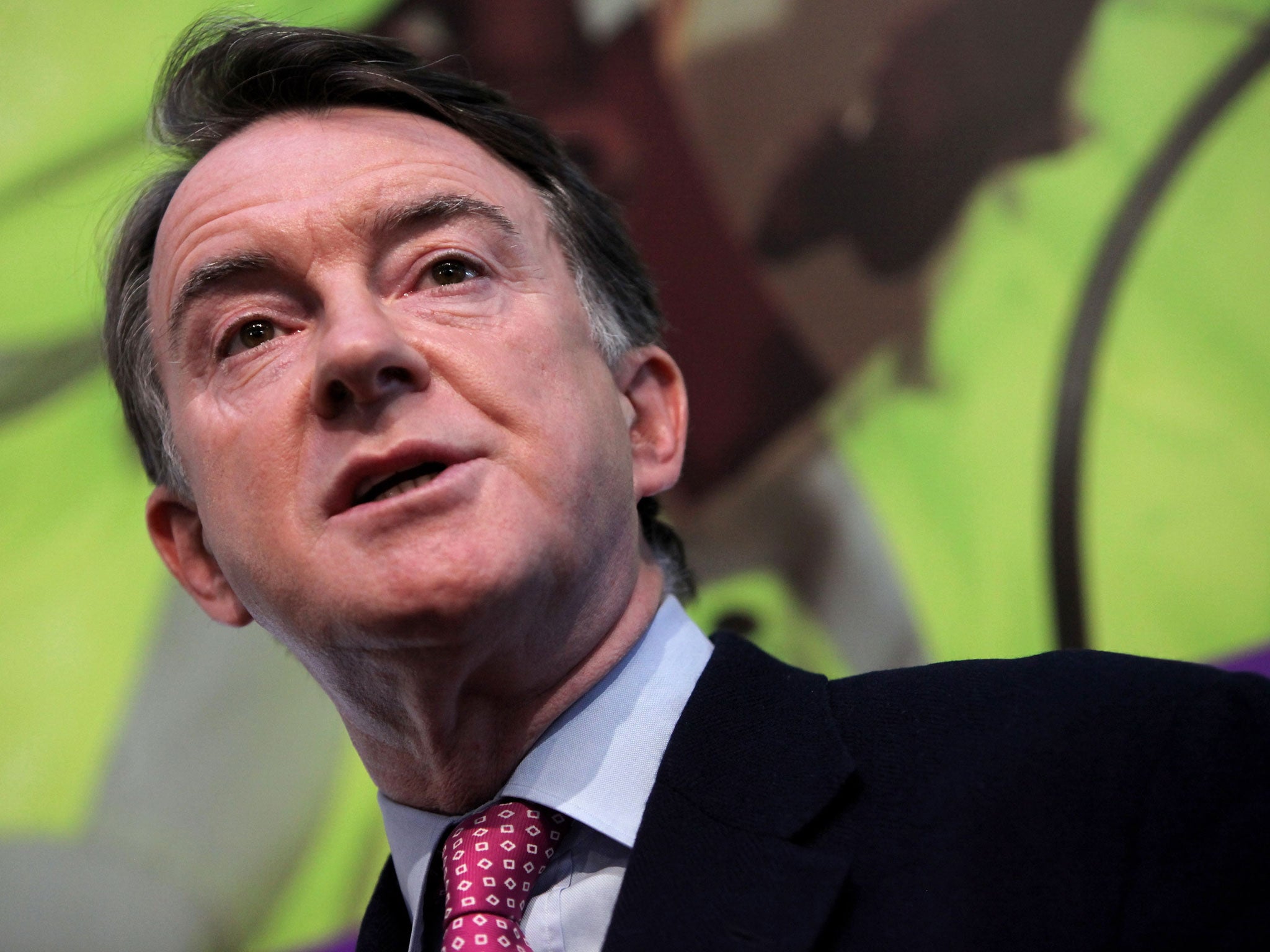Why some Labour MPs think it’s their fault we’re heading for a hard Brexit
John Rentoul explores claims made by a Labour former cabinet minister that the party may have inadvertently helped the cause of the Eurosceptic wing of the Tories


Peter Mandelson caused a stir this week by suggesting that Remainers, by campaigning to reverse the referendum decision, helped bring about a more damaging form of Brexit than was necessary.
The Labour former cabinet minister and EU trade commissioner said the “triumph of hardline Tory Brexiters” was the price the “pro-EU camp will pay for trying to reverse the referendum decision rather than achieve the least damaging form of Brexit”. The country could have had Theresa May’s compromise, which would have kept Britain in the EU customs union, at least temporarily, but in the next few days is likely to end up with “a very hard Brexit, mitigated only by a barebones deal”.
Lord Mandelson went on: “As someone who was firmly in the reversal camp, I played my part in this outcome.” The shock of a politician appearing to accept responsibility for the consequences of their decisions has proved too much for many of his enemies and for some of his friends. Especially when he added: “Yet if I could turn the clock back, I have little doubt I would do the same again.”
So it is worth looking at what Lord Mandelson was and was not saying. I don’t think he was saying that, knowing the outcome, he would have done exactly the same. I think he meant that it was worth trying to stop Brexit, and that it is clear only in retrospect why that effort failed. While he is prepared to accept responsibility for having taken the risk that it wouldn’t work, he is clear where the real blame lies: “The parties chose first deadlock then the Liberal Democrats, SNP and Corbyn opted for an early election to decide the matter.”
His analysis seems to me to be both honest and deadly accurate. If it had not been for the mistake of handing Boris Johnson the election on a plate, the “pro-EU camp” might have obtained a better outcome. They might not have been able to stop Brexit, but if the 2017 parliament had continued to sit it could have been able to dictate better terms for the trade deal that David Frost and Michel Barnier may be on the verge of agreeing.
There are certainly some Labour MPs and ex-MPs who regret not voting for May’s compromise when they could have done. Gloria De Piero, the former MP for Ashfield, told me just after the election: “I should have been braver because I knew the whip was fundamentally wrong.”
However, the politics of that divided parliament are more complicated than that. If there ever had been enough Labour MPs prepared to back May’s compromise – and remember she was still 32 votes short on her third and final attempt – their very willingness to do so might have deterred more Conservative MPs from supporting the deal. The nature of adversarial democracy made it hard for a “Conservative” Brexit to pass with Labour votes.
In the end, therefore, Lord Mandelson may be right that the “pro-EU camp” should focus its efforts on trying to shape the post-Brexit relationship with the EU in the direction of a closer, more constructive and mutually beneficial partnership than Johnson intends.
The purpose of his article, after all, was to encourage Labour MPs to think about how a future Labour government might deal with the EU, rather than to obsess about the short-term tactical question of whether to vote for Johnson’s deal (if it happens) or to abstain.
Unfortunately, the short-term tactical question is unavoidable, and likely to cause Keir Starmer a serious problem either way, but it cannot do any harm to think about what a Labour government might do, if it ever had the chance.

Join our commenting forum
Join thought-provoking conversations, follow other Independent readers and see their replies
Comments